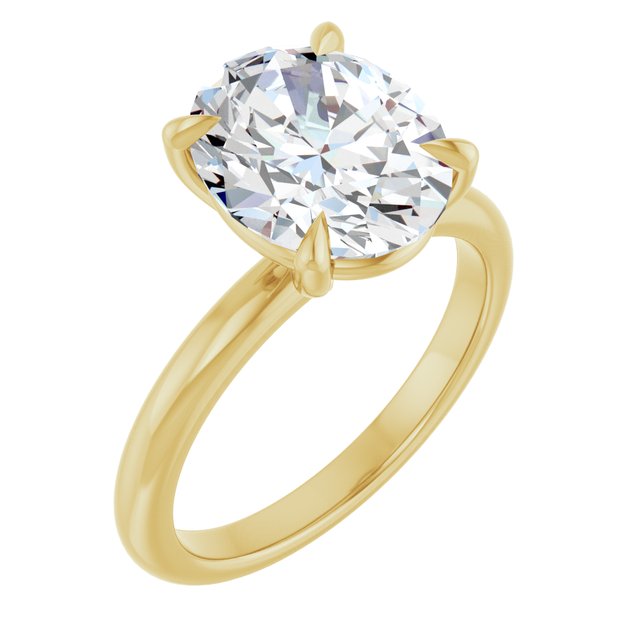Overview
When searching for the perfect engagement ring, many people immediately think of diamonds. However, an alternative gemstone has been gaining popularity for its beauty, affordability, and ethical origins—Moissanite. Known for its brilliance and affordability, moissanite is often compared to diamonds, leaving buyers wondering which one is the better choice.
In this blog, we’ll explore some of the most frequently asked questions about moissanite and compare it to diamonds in terms of brilliance, durability, cost, and ethical considerations. By the end, you’ll have a clearer idea of whether moissanite is the right choice for your engagement ring.
What is Moissanite?
Moissanite is a gemstone made of silicon carbide, first discovered in a meteorite by French scientist Henri Moissan in 1893. While natural moissanite is extremely rare, the gemstone we see in jewelry today is lab-created, offering a sustainable and ethical alternative to natural stones. Its sparkling appearance and durability make it a favorite for those seeking a non-traditional yet stunning engagement ring.
How Does Moissanite Compare to Diamonds?
Brilliance
- Moissanite: Known for its intense brilliance, moissanite refracts light in a way that creates more fire and rainbow-like flashes than diamonds. This unique sparkle can be eye-catching and appealing to some, but others may find it less subtle than a diamond’s classic brilliance.
- Diamond: Diamonds have a more subdued, white sparkle, which many people associate with timeless elegance.
Durability
- Moissanite: With a hardness of 9.25 on the Mohs scale, moissanite is one of the hardest gemstones, making it highly resistant to scratches and suitable for everyday wear.
- Diamond: As the hardest known natural substance, diamonds score a perfect 10 on the Mohs scale, making them the most durable option for an engagement ring.
Price
- Moissanite: One of the most significant advantages of moissanite is its cost. Moissanite is significantly more affordable than diamonds, often costing 70–90% less. This allows buyers to invest in a larger or higher-quality stone without breaking the bank.
- Diamond: Diamonds are far more expensive, and their cost increases exponentially with carat size, clarity, and color grade.
Ethics and Sustainability
- Moissanite: As a lab-grown gemstone, moissanite has a minimal environmental impact and is free from the ethical concerns often associated with diamond mining.
- Diamond: While conflict-free diamonds are available through initiatives like the Kimberly Process, the mining industry still faces criticism for its environmental and labor practices.
Frequently Asked Questions
- Is Moissanite a “Fake” Diamond? No, moissanite is not a fake diamond. It is a unique gemstone with its own properties and characteristics. While it resembles a diamond, its brilliance and rainbow-like sparkle set it apart.
- Will Moissanite Lose Its Sparkle Over Time? No, moissanite maintains its brilliance and fire for a lifetime. Unlike diamonds, it does not collect as much grease or dirt, making it easier to keep clean.
- Does Moissanite Come in Different Colors? Yes, moissanite can range from near-colorless to faintly yellow or gray. The color grading is typically less extensive than diamonds, but high-quality moissanite is virtually indistinguishable from a diamond to the untrained eye.
- Can You Tell the Difference Between Moissanite and Diamond? While moissanite and diamonds look similar, a trained eye can usually spot the differences. Moissanite’s extra fire and rainbow-like sparkle can give it away under certain lighting conditions.
-
Is Moissanite as Valuable as Diamond? Moissanite does not hold the same market value or resale potential as a diamond. However, its affordability and ethical origins make it a compelling choice for those prioritizing cost and sustainability.

Should You Choose Moissanite or Diamond?
The decision between moissanite and diamond ultimately depends on your personal preferences, budget, and values. Here’s a quick guide to help:
-
Choose Moissanite if:
- You want a beautiful, affordable, and ethical gemstone.
- You prefer a more vibrant and rainbow-like sparkle.
- You’re looking for a sustainable alternative to mined stones.
-
Choose Diamond if:
- You value traditional and timeless elegance.
- You want a gemstone with unmatched hardness and durability.
- Resale value and long-term investment are important to you.
Conclusion
Moissanite offers a brilliant, ethical, and budget-friendly alternative to diamonds, making it an excellent choice for modern engagement rings. Whether you prioritize affordability, sustainability, or unique sparkle, moissanite is a gemstone that deserves serious consideration. For those who value tradition, timelessness, and unmatched durability, diamonds remain the ultimate classic.
The choice between moissanite and diamond is deeply personal—both options can beautifully symbolize your love story. By understanding the differences and weighing the pros and cons, you’ll be able to select a gemstone that resonates with your values and preferences.


